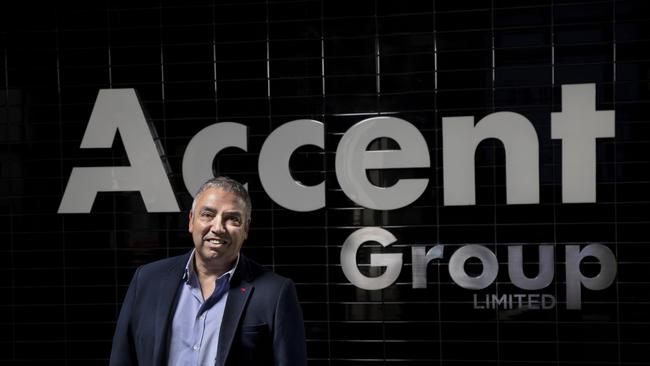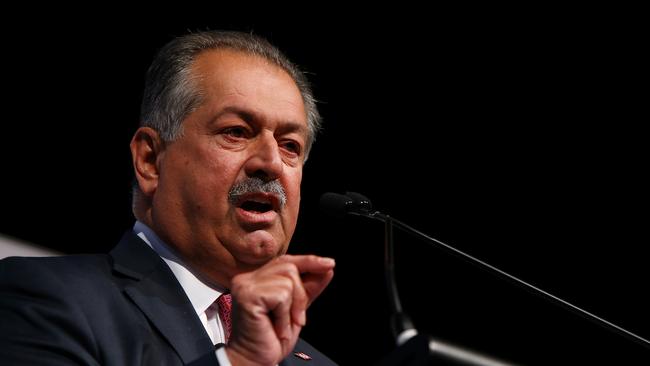Pressure mounts on execs paid bonuses despite asking for JobKeeper help
Their companies were forced to rely on government handouts. But that hasn’t stopped these high-paid executives from pocketing huge bonuses.

Dozens of high-paid company executives are pocketing bonuses while holding their hands out for JobKeeper payments, prompting calls from other prominent businesspeople to clean up their act.
Multiple earnings reports for 2019-20 show many in top-tier management still received cash and share bonuses despite their firms being granted the taxpayer-funded wage subsidies.
Among the most notable was Daniel Agostinelli, chief executive of footwear company Accent Group, who was paid a $1.2 million cash bonus, while chief financial officer Matthew Durbin got $421,500 – both more than they received the previous financial year.
The company was handed almost $24 million in government wage subsidies and said – despite sales recovering strongly in May and June – it did not expect to apply for JobKeeper “from September”.
Matt Bekier, chief executive of Star Entertainment Group, got 40 per cent of what he would have been paid if the Star Casino operator’s targets had been met, but that still amounted to almost $830,000 in short-term incentive deferred equity.
The company received about $64.8 million from the Federal Government between April and June.
Construction giant Lendlease also reduced deferred equity awards to executives after obtaining total government support globally of $15 million, including $7 million in Australia, assistance it described as “modest”.

Andrew Barkla, managing director of IDP Education, which was granted $4.46 million in wage subsidies, achieved 65 per cent of his STI target and pocketed more than $683,000.
The company noted the pandemic had adversely affected shareholders but said executives had also suffered by being rewarded less than usual.
“After deep contemplation, the board believes that no ‘special’ adjustment is required to these reward outcomes and that the results fairly reflect remuneration and performance outcomes, all things considered,” it said.
Former Dow Chemical chief executive Andrew Liveris was asked about the pandemic payouts after a wide-ranging address to the National Press Club on Wednesday and said it was a topic he was passionate about, believing corporate ethics had to change.
“I’m on the record in the US for saying this – and my peers hated me – that CEOs get paid too much,” he said.
“I am on record for saying we should pay more taxes, and I am on record for saying we should be giving back rather than taking.”

Mr Liveris recounted a speech he gave at a business school a few years ago when one “brave soul” said he was going into manufacturing, while everyone else said they were heading for Wall Street.
“I think we have completely screwed up the financial model,” he said.
“When have we given licence to the people who manage money, to make money more than the people who invent and actually deliver the product?
“So the middle man and the ethics of money has overwhelmed the ethics of running institutions to standards and values that we all would want: respect, responsibility, fairness, equity.
“We need to fix it.”
His comments come after Business Council of Australia chief executive Jennifer Westacott recently told ABC’s Insiders program she believed companies should not be paying executive bonuses if they were receiving JobKeeper.
“It wasn’t designed for that,” she said.
“It was designed to keep people working.
“If I were those companies, I would exercise some very careful judgment.”


